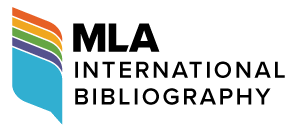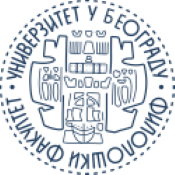Irony and Black Comedy in the Animal Kingdom: La Divina Chusma (The Divine Rabble) by Rafael Ángel Herra, or a Revision of the Traditional Fable
DOI:
https://doi.org/10.18485/beoiber.2017.1.1.7Abstract
This study focuses on the analysis of the collection of fables La divina chusma, by the writer and philosopher Rafael Angel Herra (Costa Rica, 1943), published in 2011. We will try to demonstrate how the volume relates to the classical models (Aesop, Phaedrus) and to the ones from the 18th century (La Fontaine, Iriarte, Samaniego), while it suggests a revisit to the genre from a parodic point of view that does not abstain from the use of irony and black humor. To achieve our goal, we propose, at first, a reading from the tradition of the genre of the fable, through a study of intertexts and the role of the fable in historical contexts from the Greco-Roman era to the stage of the Spanish Ilustración. Regarding the theory that we use as a research support, we propose a link between consolidated literary theories (from Vladimir Propp) and other theories of current interest, such as Omar Calabrese's reflections on the recovery of aesthetic and artistic products of the past, or the studies of David Le Breton on the need of human beings to escape social pressure (with an application, of course, to the animal world), or – finally – Bruno Bettelheim's research into the psychoanalytic meanings of fables.Key words: Rafael Angel Herra, Costa Rican Contemporary Literature, La divina chusma, genre of fable.References
Alvar, Carlos, José Carlos Mainer y Rosa Navarro. Breve historia de la literatura española. Madrid: Alianza Editorial. 2011. Impreso.
Bettelheim, Bruno. Il mondo incantato. Uso, importanza e significati psicoanalitici delle fiabe. Milano: Feltrinelli Editore, 2015. Stampato.
Calabrese, Omar. L'etá neobarocca. Bari: Laterza, 1987. Stampato.
Cioranescu, Alejandro. «Sobre Iriarte, La Fontaine y fabulistas en general». Estudios de literatura epañola y comparada, 1954: 197‒204. Impreso.
Hernández, Germán. «Rafael Angel Herra: La Divina Chusma». El Signo Roto. 2011. Web. 21 Oct. 2016.
Herra, Rafael Ángel. La divina chusma. San José de Costa Rica: Uruk Editores, 2011. Impreso.
—. Autoengaño. Palabras para todos y sobre cada cual. San José de Costa Rica: Editorial UCR, 2012. Impreso.
Le Breton, David. Fuggire da sé. Una tentazione contemporanea. Milano: Raffaello Cortina Editore, 2016. Stampato.
Leiris, Michel. Frêle Bruit. Paris: Gallimard, 1976. Imprimé.
Lyotard, Jean-Francois. La condizione postmoderna. Milano: Feltrinelli, 1981. Stampato.
Propp, Vladimir. Morphologie du conte. Paris: Éditions Points, 2012. Imprimé.
Rodríguez Adrados, Francisco. Historia de la fábula greco-latina. 3 vols. Madrid: Editorial de la Universidad Complutense, 1979‒1987. Impreso.
Samaniego, Félix María. Fábulas. Madrid: Cátedra, 2012. Impreso.
Sotelo I., Alfonso. «Introducción». Samaniego, F.M, Fábulas, Madrid: Cátedra, 2012: 13‒142. Impreso.
Bettelheim, Bruno. Il mondo incantato. Uso, importanza e significati psicoanalitici delle fiabe. Milano: Feltrinelli Editore, 2015. Stampato.
Calabrese, Omar. L'etá neobarocca. Bari: Laterza, 1987. Stampato.
Cioranescu, Alejandro. «Sobre Iriarte, La Fontaine y fabulistas en general». Estudios de literatura epañola y comparada, 1954: 197‒204. Impreso.
Hernández, Germán. «Rafael Angel Herra: La Divina Chusma». El Signo Roto. 2011. Web. 21 Oct. 2016.
Herra, Rafael Ángel. La divina chusma. San José de Costa Rica: Uruk Editores, 2011. Impreso.
—. Autoengaño. Palabras para todos y sobre cada cual. San José de Costa Rica: Editorial UCR, 2012. Impreso.
Le Breton, David. Fuggire da sé. Una tentazione contemporanea. Milano: Raffaello Cortina Editore, 2016. Stampato.
Leiris, Michel. Frêle Bruit. Paris: Gallimard, 1976. Imprimé.
Lyotard, Jean-Francois. La condizione postmoderna. Milano: Feltrinelli, 1981. Stampato.
Propp, Vladimir. Morphologie du conte. Paris: Éditions Points, 2012. Imprimé.
Rodríguez Adrados, Francisco. Historia de la fábula greco-latina. 3 vols. Madrid: Editorial de la Universidad Complutense, 1979‒1987. Impreso.
Samaniego, Félix María. Fábulas. Madrid: Cátedra, 2012. Impreso.
Sotelo I., Alfonso. «Introducción». Samaniego, F.M, Fábulas, Madrid: Cátedra, 2012: 13‒142. Impreso.
Downloads
Published
2017-05-18
How to Cite
Gatti Riccardi, G. “Irony and Black Comedy in the Animal Kingdom: La Divina Chusma (The Divine Rabble) by Rafael Ángel Herra, or a Revision of the Traditional Fable”. BEOIBERÍSTICA - Journal of Iberian, Latin American and Comparative Studies (ISSN: 2560-4163 Online), vol. 1, no. 1, May 2017, pp. 103-15, doi:10.18485/beoiber.2017.1.1.7.
Issue
Section
LITERATURE
License
Authors who publish with this journal agree to the following terms:
- Authors retain copyright and grant the journal right of first publication with the work simultaneously licensed under a Creative Commons Attribution-ShareAlike 4.0 International License that allows others to share the work with an acknowledgement of the work's authorship and initial publication in this journal.
- Authors are able to enter into separate, additional contractual arrangements for the non-exclusive distribution of the journal's published version of the work (e.g., post it to an institutional repository or publish it in a book), with an acknowledgement of its initial publication in this journal.
- Authors are permitted and encouraged to post their work online (e.g., in institutional repositories or on their website) prior to and during the submission process, as it can lead to productive exchanges, as well as earlier and greater citation of published work (See The Effect of Open Access).













